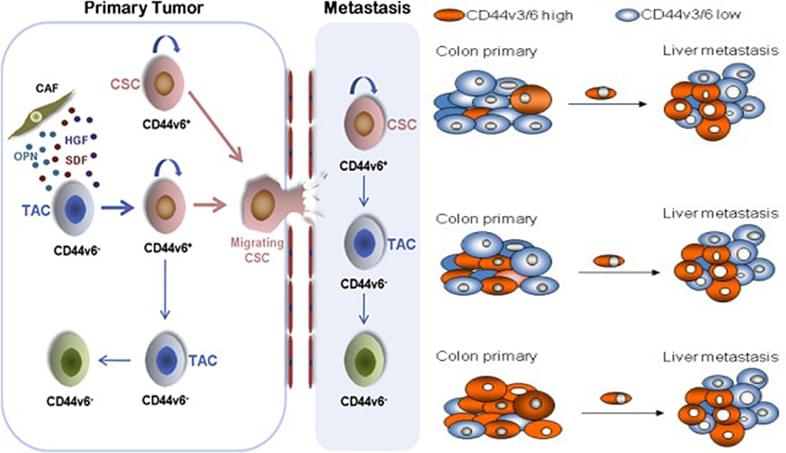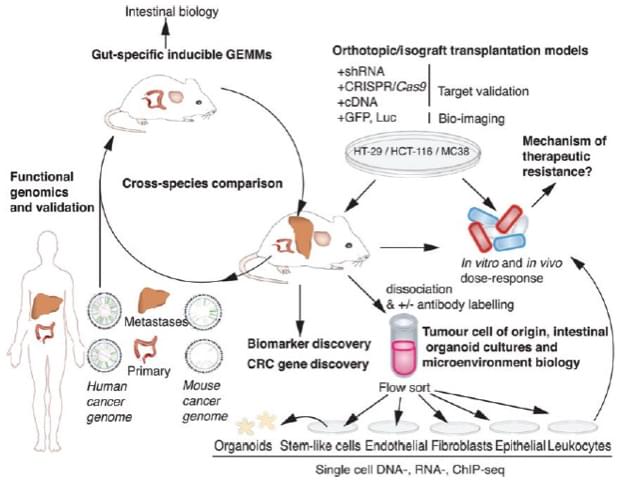All products and services are For Research Use Only and CANNOT be used in the treatment or diagnosis of disease.
Target Background
CD44v6 is an alternative splicing isoform of CD44, which forms a broadly distributed family of cell surface glycoproteins. It is a receptor for hyaluronic acid (HA) and also interacts with other ligands: osteoponin, collagens, matrix metalloproteinases (MMPs), etc. Since CD44v6 participates in a wide variety of bioprocesses such as cell-cell interactions, cell adhesion and migration, it involves in multiple cellular functions like lymphocyte activation, recirculation and homing, hematopoiesis, and especially tumor metastasis. Accumulative evidences prove that CD44v6 functionally promotes the adenoma-to-carcinoma progression in premalignant and malignant colonic lesion. Meanwhile, it is expressed more in colorectal cancer stem cells for migration and generation of metastatic tumors than in primary tumors. Therefore, CD44v6 is regarded as a functional biomarker and therapeutic target for CAR-T cell immunotherapy.

Characteristics of CD44v6 in colorectal cancer metastasis
Cell stem cell 14.3 (2014): 342-356
Molecular cancer 11.1 (2012): 1
Anti-CD44v6 CAR-T Cell Therapy
A novel CD44v6-targeting prodrug bivatuzumab mertansine (BIWI 1, humanized monoclonal antibody coupled with the toxin mertansine) has been tested in phase 1 clinical trials (NCT02254005, NCT02254018) for maximum tolerated dose (MTD), safety, pharmacokinetics and efficacy in patients with CD44v6 positive metastatic breast cancer and advanced squamous cell carcinoma of the head and neck. The studies of preclinical and clinical anti-CD44v6 CAR-T cell therapy has not been reported up to now. Therefore, Creative Biolabs helps researchers capture the brighter and prosperous future of anti-CD44v6 CAR-T cell therapy.
Animal Models for in vivo Study of anti-CD44v6 CAR-T Cell Therapy
Creative Biolabs offers researchers almost all the animal models (murine, canine, etc.) generated from the major techniques including the conventional carcinogen-induced models, the mosaic transposon- or virus-induced models, the transgenic models and the subcutaneous or patient-derived xenograft models for a variety of colorectal cancer, breast cancer, head and neck cancer, etc. For instance, Creative Biolabs offers genetically modified mouse models of colorectal cancer: ApcMin/+, Apc580S/580S, Apclox15/+ Fabpl-Cre, Msh2-/-, Villin-Cre/Msh2LoxP, etc.

Mouse models of advanced colorectal cancer as research and preclinical tools
BioEssays 37.8 (2015): 909-920
Once you request Creative Biolabs for an animal model, Creative Biolabs offers you the best in the world.
In vivo Assay Parameters and Techniques
At Creative Biolabs, we offer the most exquisite and comprehensive service platform for preclinical CD44v6 CAT-T cell therapy research.
Efficacy Test
Tumor remission monitored by tumor volume recording or bioluminescence imaging and survival curve tracking
Viability and Bio-distribution Studies
Durability, GLP-compliant bio-distribution studies
Toxicity Evaluation
Pilot tolerability (MTD, The route of administration, Dose regimen/response/onset)
Clinical observation (body weight, feed consumption, ophthalmologic and clinical pathology)
Cytokine storm surveillance (fever, hypertension, prolonged cytopenia)
Complete necropsy, organ weight
Histopathology
Tumorigenicity study
To extend the fundamental capabilities of CAR-T cell therapy to all the potential targets, Creative Biolabs is dedicated to creating the most scientific pre-clinical in vivo assay design with the most clinically relevant animal models and the consideration of every elementary detail to innovate the prosperous future of CAR-T cell therapy for concrete utility. Creative Biolabs offers the best in the world.
References
For any technical issues or product/service related questions, please leave your information below. Our team will contact you soon.
 NEWSLETTER
NEWSLETTER
The latest newsletter to introduce the latest breaking information, our site updates, field and other scientific news, important events, and insights from industry leaders
LEARN MORE NEWSLETTER NEW SOLUTION
NEW SOLUTION
CellRapeutics™ In Vivo Cell Engineering: One-stop in vivo T/B/NK cell and macrophage engineering services covering vectors construction to function verification.
LEARN MORE SOLUTION NOVEL TECHNOLOGY
NOVEL TECHNOLOGY
Silence™ CAR-T Cell: A novel platform to enhance CAR-T cell immunotherapy by combining RNAi technology to suppress genes that may impede CAR functionality.
LEARN MORE NOVEL TECHNOLOGY NEW SOLUTION
NEW SOLUTION
Canine CAR-T Therapy Development: From early target discovery, CAR design and construction, cell culture, and transfection, to in vitro and in vivo function validation.
LEARN MORE SOLUTION